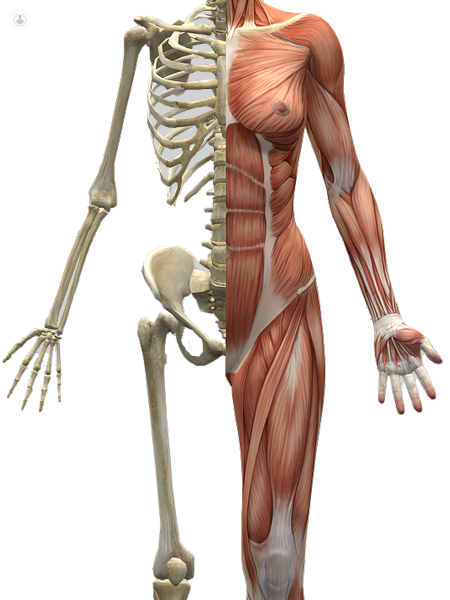



What is myopathy?
Myopathy is a generic term, referring to a muscle disease, in which the muscle fibres are affected and do not function properly, leading to muscle weakness.
What are the symptoms of myopathy?
General symptoms include a progressive weakening of the muscles and an overall loss of strength, even in the most common situations, such as raising your arms, climbing the stairs or getting up from a chair. The symptoms and affected muscles vary according to the type of myopathy you may be suffering from, for instance:
- Hereditary inclusion body myopathies (HIBM), which affect the distal region of the limbs
- Facioscapulohumeral muscular dystrophy (FSHD) can cause eyelid drooping, inability to whistle, decreased facial expression
- Mitochondrial myopathies can also cause ptosis (drooping or falling of the eyelids)
- Dystrophies or myotonic syndromes: these cause a delay in muscle relaxation, after a muscle has been contracting due to a mechanical stimulus.
How are myopathies diagnosed?
Myopathies can be diagnosed with an accurate neurological examination, during which a blood test will be taken to analyse your muscle enzymes levels, inflammation levels, metabolic rates and hormone levels. You will also have to have an EMG (electromyograph). A genetic test and a muscle biopsy will also help identifying what may be causing the condition.
What causes myopathy?
Myopathies can be caused by a genetic degeneration (muscular dystrophy) or by an alteration of the cellular metabolism; they can also be caused by muscular inflammation. Over time, the patient loses muscle mass progressively and symmetrically.
How can myopathy be treated?
As of yet there is no permanent cure for myopathy. You can, however, treat the symptoms, so that you can have a higher life expectancy and a better quality of life.
Which doctor should I talk to?
You should see a rheumatologist.